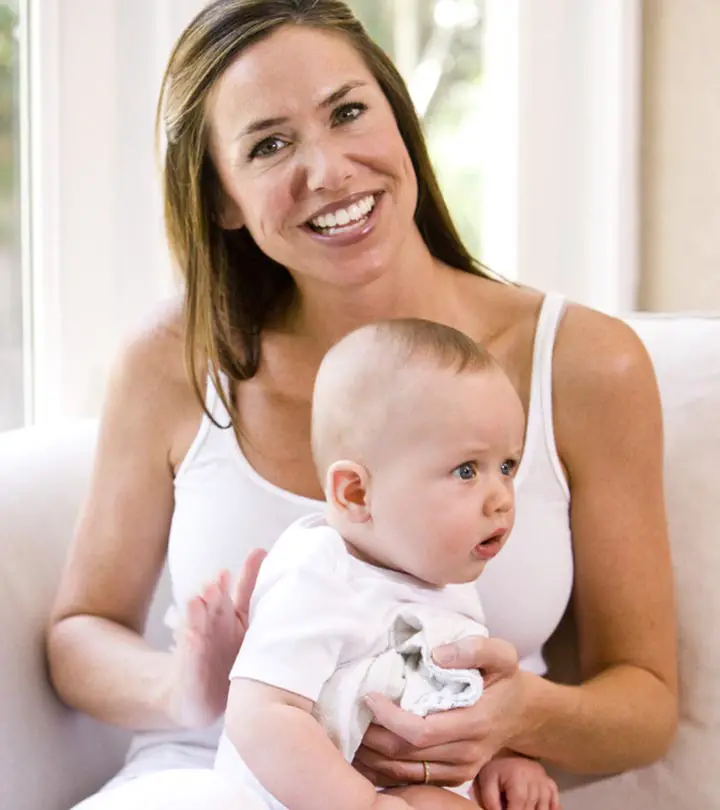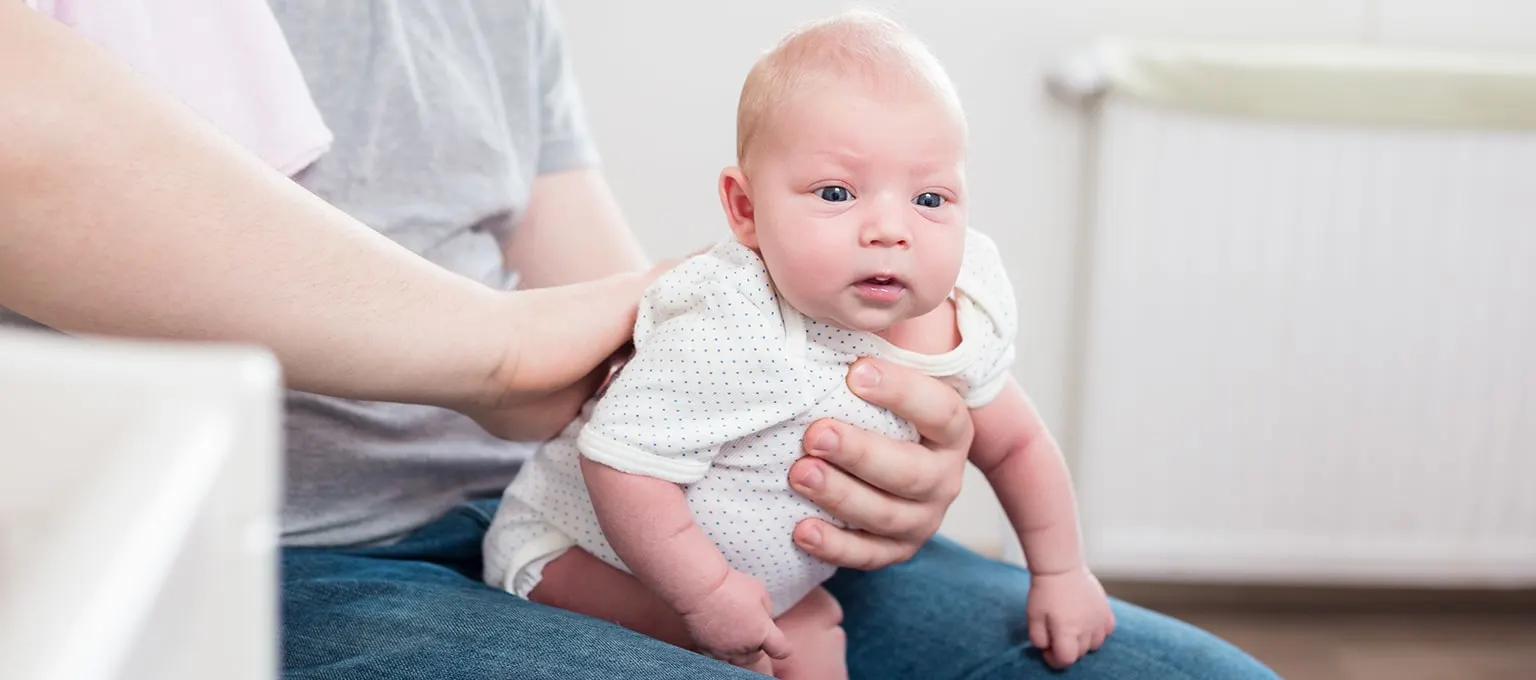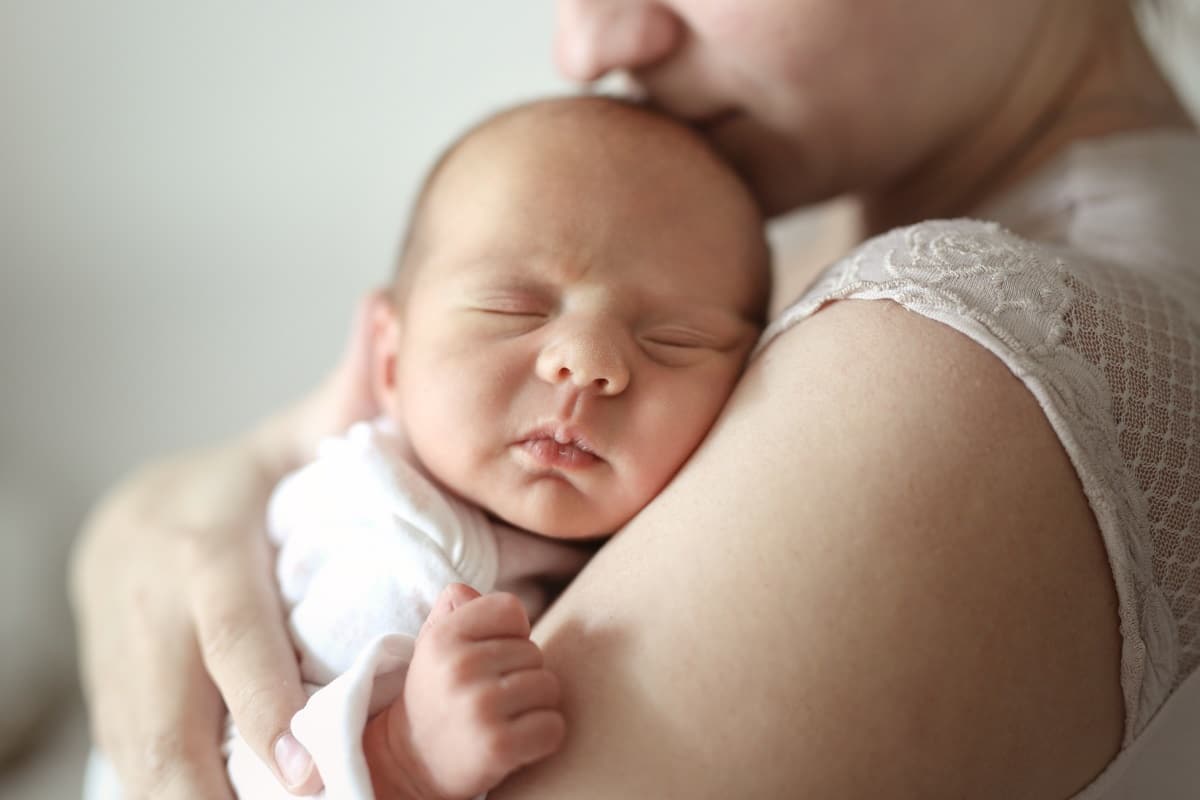Table of Contents
When can you stop burping a baby? It’s late night, and you’ve been patting your child’s back for eternity, hoping for a burp. You’re beyond frustrated, and the only thing on your mind is how much longer you must try.
Is this scenario familiar to you? Burping your baby may appear to be a game with no clear rules. When should you do it? How long will this last? When are you going to stop? These are reasonable questions that have crossed your mind at some point (especially late at night when you want to get back to sleep!)

We understand how frustrating it is to try to play a game when you don’t know the rules, so we’re here to assist. When can you stop burping a baby? It is natural for new parents to think about it.
Burping is a part of your baby’s feeding routine that helps them release the excess gas from their tummies that they tend to ingest while feeding. It is thought to help your child avoid spitting up and relieve gastrointestinal discomfort caused by trapped gas, such as colic. Continue reading to learn when you can stop burping a baby, what to look for to make an informed decision and other options for assistance.
When can you stop burping a baby?
When can you stop burping a baby? By four to six months, most babies no longer require burping. However, each baby is unique, as is the rate at which their gastrointestinal system develops. As a result, some babies may need to burp frequently, while others may not need to burp at all. Because babies’ burping needs vary, a set age to stop burping does not apply to all babies. As a result, recognizing signs that your baby is about to burp is essential.
When a baby eats, he or she inhales some air. (Breastfed infants typically take in a little less air, but your baby will take in some air regardless of how you feed them.) This air can make your child feel gassy and uncomfortable if this air does not escape.
Burping newborn babies between breasts is recommended if breastfeeding and every 2 to 3 ounces if bottle feeding. On the other hand, burping may need to happen more or less frequently depending on your child’s needs.
Babies can be burped in various ways while being held in different positions. If you think your newborn needs to burp but are having difficulty with one position, try switching techniques!
Many new parents burp their babies because they are concerned that their child will be unable to release gas on their own. Some babies, however, burp easily on their own or appear less gassy in general. Burping your baby during a feed may not be necessary at all.
There is also research on your side if you dread burping your baby frequently. According to a 2015 study, burping did not reduce colic episodes and increased spit-up in fit babies.
So, what if you desire to burp your baby, but it takes an eternity for a burp to come out?
If your baby hasn’t burped after about a minute, you can probably move on or try again later. It’s possible that your baby doesn’t need to burp right now.
You’ll figure out fast when your baby needs a little extra help if you check for any signs of discomfort (e.g., squirming, pulling away).

When can you stop burping a baby? Signs that it’s time to stop burping the baby
When can you stop burping a baby? Here are some indicators that your baby may not require burping.
When can you stop burping a baby? The baby can sit up and move
Around six months, most babies can control their head and neck and sit without assistance. They may also start crawling and moving around at the same time. Furthermore, their gastrointestinal system is more mature now and can hold up gastric content more efficiently, so they may have fewer spit-ups and no need for burping.
When can you stop burping a baby? The infant is burping on own
Your baby may pull away from you while feeding and burp without you rubbing their back. A baby burping independently indicates that you no longer need to burp them. According to experts, most babies can burp on their own by two months of age. Some babies, however, may require more time. So, pay attention to your child. They may require burping if they appear unsettled or fussy during and after feeding.
When can you stop burping a baby? The baby appears to be at ease during and after feeding
When babies appear to be uncomfortable during feeding, experts advise burping them. However, if the baby appears comfortable during feeding and is happy and playful immediately, following feeding, you do not need to burp them.
When can you stop burping a baby? Is the baby bottle-fed or breastfed?
Breastfed and bottle-fed babies can both suck air while feeding. Bottle-fed babies, on the other hand, suck more air because milk flows faster from a bottle than from the mother’s breast. As a result, breastfed babies require less burping than bottle-fed babies, and they may as well stop sooner.
Burping babies is generally recommended by experts to reduce spit-ups and prevent gastrointestinal gas buildup, which can cause issues such as colic. Some studies, however, have concluded that burping does not significantly reduce colic events and spit-ups. Consult your pediatrician to determine whether the baby requires burping. If the doctor says yes, burp the baby according to their instructions.

Also Read: When Do Babies Laugh? 9 Interesting Facts!
When can you stop burping a baby? What if burping isn’t enough?
When can you stop burping a baby? What if burping isn’t enough? Burping your child may not always be enough to alleviate their discomfort. If your baby appears to be uncomfortable due to gas, there are several alternatives to burping that you can try. These are some examples:
- Cycling their legs
Laying your youngster on their back and moving their legs as if pedaling a bicycle can help gas escape. (Poop can sometimes find its way out using this technique if your child is working hard to push it out!)
- Massage for babies
According to proponents, massage may improve infants’ circulatory and digestive systems, which may help with gas and constipation. Nevertheless, there is little scientific evidence to support these claims.
Massage can be very calming for babies and parents, even if it isn’t the magical solution for your child. Nothing beats touch when it comes to bonding with your child!

- Change their bottle’s nipple flow
If you are feeding your infant with a bottle, the size of your nipple may be causing your child to take in more air. A nipple that releases milk too quickly or slowly may result in your baby gulping for air or sucking extra air from the bottle.
You may notice your baby feels a little better after adjusting the nipple size up or down.
- You should replace bottles
No one bottle has been proven to be the best at reducing colic, eliminating acid reflux, or reducing gas and spit-ups. However, some brands focus on venting and air control measures, which may benefit your child’s stomach.
Nonetheless, you can talk to your pediatrician about trying different bottles, such as a self-pacing bottle that regulates suck-swallow-breath coordination. Such bottles decrease the amount of air that bottle-fed babies swallow and, as a result, may reduce the need for burping.
- Use a pre-made formula
If your child’s stomach always seems to hurt, switching formulas might be worth a shot. Sometimes the answer is as simple as switching to a premixed version of the powder formula you’re already using. However, before switching to soy or other types of formula, consult with your baby’s pediatrician.
If you’re breastfeeding or bottle-feeding breast milk instead of formula, talk to your baby’s pediatrician about your diet if you notice your child having stomach or bowel problems within a few hours of breastfeeding sessions.
- Consult your doctor about over-the-counter medications
Before employing gripe water or gas drops on your child, consult with your doctor. While it is unlikely that your child could have an allergic reaction, and ingredients can vary greatly from brand to brand (especially if you intend to use gripe water), getting your doctor’s approval is critical.
It’s also essential to remember that no over-the-counter (OTC) medication is effective for all babies. The effectiveness of an over-the-counter treatment is highly individual.
If your baby’s burps include excessive spit-up, projectile vomiting, or your infant seems to be in distress when burping, consult with their doctor, who can help you rule out other possible causes, such as gastroesophageal reflux disease (GERD). Your kid’s doctor can also advise you on how to alleviate your baby’s specific symptoms.

Helping a baby burp after each feed and in between feeds helps to alleviate stomach discomfort. The development of the gastrointestinal system determines when to stop burping the baby. It takes approximately four to six months for the digestive system to mature to the point where the infant does not require burping.
Some newborns, however, may require more time. Look for signs of the baby becoming playful or burping themselves after feedings. Don’t worry if your baby isn’t burping; however, consult a doctor if they appear unhappy after feeding or spitting up excessively.
Takeaway
When can you stop burping a baby? Every infant is unique when it comes to burping. While some babies will require acid reflux treatment and plenty of upright time after feedings, others will burp themselves before you even have a chance to burp them.
Because babies are so unique, there is no one right answer when it comes to burping – or when to stop burping. You’ll learn what your specific baby (or babies) needs to feel their best over time.
Understanding your baby will help you determine how frequently they need to be burped and when they no longer do.
If your infant appears to be in distress during or after feedings, despite your best efforts to relieve their gas, it may be time to consult with their doctor. They can assist you in ruling out or treating any other potential issues.
Frequently asked questions on when can you stop burping a baby
- Is it alright to put my infant to bed without burping?
You don’t have to try again if you’ve tried several times but failed to burp your baby before putting them to bed. If your newborn awakens in the middle of the night because of gas, pick them up, burp them, and then place them back to sleep.
- Can a sleeping baby choke if not burped?
If you’re worried that your baby will vomit or choke because they didn’t burp before falling asleep, don’t be. Babies have a reflex that lets them to spit or cough up any fluid obstructing their airways. Furthermore, there is no evidence that babies may choke after feeding or sleeping on their backs.
- When can you stop burping your baby?
Babies inhale some air when they eat. Breastfed babies typically take in slightly less air than bottle-fed babies, but your baby will take in some air no matter how you feed them. This air may cause gas and discomfort in your baby. The promising news is that most babies can stop being burped by four to six months, according to experts.
- What is the most effective way to burp my baby?
Burping babies can be done in a variety of ways and while they are held in various positions. If you feel your baby needs to burp but are having trouble with one position, try switching.
If your baby hasn’t burped within a minute, you can usually proceed or try again later; check for any signs of discomfort (e.g., wriggling or pulling away).
- Can burping my baby help with colic relief?
Burping, according to studies, does not reduce colic episodes and increases spit-up in healthy babies.
- Can gripe water help with gas relief?
Consult your baby’s pediatrician before using gripe water (or gas-relieving drops). While it is unlikely that your baby could have an allergic reaction, ingredients can vary greatly between brands (especially if you intend to use gripe water).
- Is gas a sign of a medical problem?
Assume your baby’s burps include a lot of spit-ups. If your infant exhibits projectile vomiting or seems to be in anguish when burping, consult with their physician, who can help you rule out other possible causes, such as gastroesophageal reflux disease (GERD). Your offspring’s doctor can also advise you on addressing your child’s specific issues.


